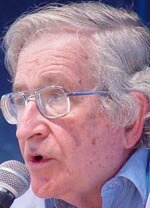We are struggling not only to liberate the Palestinian people from the occupation and from Israel’s racist apartheid regime, but also to liberate you from the illness of racism, so you can stop inflicting harm on me and on millions of people who are the natives of this country. And then we can live together equally and peacefully.
Int’l
The unspoken message of Obama’s visit is that the Netanyahu government is free to pursue its hardline agenda with little danger of anything more than symbolic protest from Washington.
On the occasion of the swearing in of the new Israeli government and the 19th Knesset (18 March 2013) and the International Day for the Elimination of Racial Discrimination (22 March 2013), Adalah is pleased to launch the Discriminatory Laws Database,
The Israeli government has been forcing the Palestinian Authority into approving water infrastructure for illegal West Bank settlements for the past 15 years, according to research by a University of Sussex academic.
Here is the rub. Mr Netanyahu already has a stranglehold on the politics of his potential peace partners. He can easily manipulate the fortunes of the Palestinian leader Mahmoud Abbas on the two biggest tests he faces: the peace process overseen by the international community, and reconciliation talks with the rival Palestinian faction Hamas.
In Knowing Too Much, Norman Finkelstein [argues] that both American Jews and the American public more generally are moving away from uncritical support for Israel. This shift, he suggests, holds out the possibility that the long-running Israeli-Palestinian conflict may be settled at last.
HRW’s Bill van Esveld: “The main concern is over the fact that a person cannot simply be disappeared. That is against the norms of international law. That person’s family needs to know what has happened to them. They have to be able to have access to a defence attorney and their government needs to be informed to permit consular access.”
Since 1999, over 300,000 young Jews from around the world have embarked on the free, 10-day tour of Israel known as Taglit-Birthright. It’s considered the most effective means of connecting the next generation of the Jewish Diaspora to the state of Israel. The government of Prime Minister Benjamin Netanyahu recently pledged $100 million to the program.
Last week, in one of the first actions of its kind, activists released the names of Israeli soldiers involved in the killing of a Palestinian protester. Mustafa Tamimi, a 28 year-old demonstrator from the village of Nabi Saleh, was killed when a soldier shot a tear gas canister at his face in December last year.
International NGOs are working extensively in the Palestinian villages, towns and cities of Areas A and B, whilst Palestinians in Area C (including most of the Jordan Valley) are systematically denied access to water, land, education, health care, or electricity. As these NGOs work within the military laws imposed on the West Bank by the occupation forces, Jordan Valley Solidarity has been analysing the extent to which the work of the NGOs benefits local Palestinian communities, and to what extent it benefits the occupation they are living under.
Since late October, major defence drills, including manoeuvres involving heavy tanks as well as air and missile training, have been taking place throughout the Jordan Valley as part of the joint US-Israeli exercise ‘Austere Challenge 2012,’ especially in the Valley’s northern areas illegally declared as ‘firing zones.’
The dawn of a Palestinian state has been a long time coming. After 65 years of dispossession, 45 years of occupation, and 20 years of failed peace attempts, on Thursday Palestine took one step closer to joining the community of nations. Al Jazeera’s Empire program discusses the prospects for peace with our guests: Rashid Khalidi, Peter Beinart, Ethan Bronner, and Tony Karon.
An old man in Gaza held a placard that reads: “You take my water, burn my olive trees, destroy my house, take my job, steal my land, imprison my father, kill my mother, bombard my country, starve us all, humiliate us all but I am to blame: I shot a rocket back.”
[L]et’s face it. It isn’t that we don’t know what happened in 1947-1948. It’s that we’ve chosen not to see or hear anything that jars our thinking on the subject. Certain words and ideas have remained taboo, certain questions have been sidelined as suspect and certain histories – ours and theirs – have been excised, the better to educate us to numbness and indifference. The result is that we prefer to think of Israeli-Arab wars as instances of the much lamented ‘clashes of civilization’ that pit our civilized allies against the violence-prone ‘other,’ As long as our side wins, there is no need to look into the face of the ‘enemy,’ or to ask ourselves why and why again? Admittedly, doing so risks discovering that ‘they’ are like us, which is as disconcerting as learning that what the ‘experts’ have taught us about our history and theirs is often plain wrong, leaving us to discover that deception can be dangerous.
Voting by an overwhelming majority — 138 in favour to 9 against (Canada, Czech Republic, Israel, Marshall Islands, Micronesia (Federated States of), Nauru, Panama, Palau, United States), with 41 abstentions — the General Assembly today accorded Palestine non-Member Observer State status in the United Nations.
An uneasy cease-fire has been declared ending Israel’s attack on Gaza, Operation Pillar of Defense. Take this quiz to see how much you know about the situation.
The ceasefire agreed by Israel and Hamas in Cairo after eight days of fighting is merely a pause in the Israel-Palestine conflict. It promises to ease movement at all border crossings with the Gaza Strip, but will not lift the blockade. It requires Israel to end its assault on the Strip, and Palestinian militants to stop firing rockets at southern Israel, but it leaves Gaza as miserable as ever.
More than 160 people died in the eight-day Gaza war. And though the fighting may have stopped, the dead and the nightmares remain. Survivors and victims’ families say they want revenge.
Three weeks before Israel launched its Operation Pillar of Defense on November 14, 2012 I was part of an academic delegation on a short trip to the Gaza Strip. For the mainstream media, October was a “normal” time, because hardships endured by Gazans are not newsworthy when there are no F-16’s dropping laser-guided smart bombs. That one or two Gazans were killed by Israeli army patrols from one week to the next in October, because they had transgressed the limits of the Israeli siege, went largely unnoticed. But such are the ethical standards of the mainstream media, genuflecting to power and ignoring the oppressed. One way to see through the ideological fog is to experience “normal” conditions from close range. Inside the Gaza Strip in October, we directly witnessed the devastating effects of the sanctions, the siege, the sea blockade and – more fundamentally – the long systematic evisceration that Gaza has suffered over several decades.























